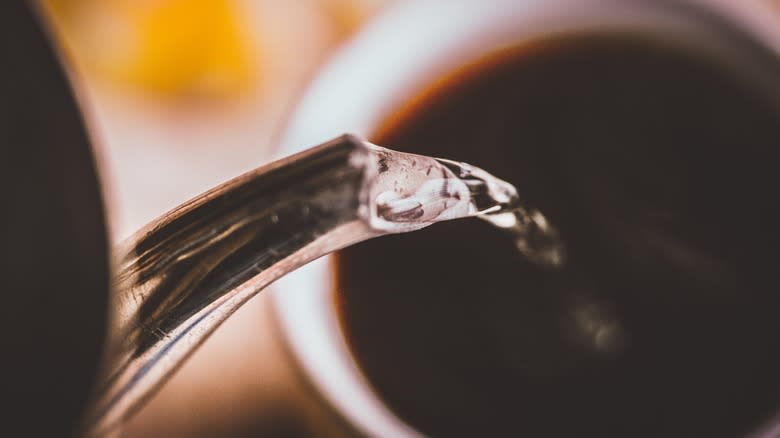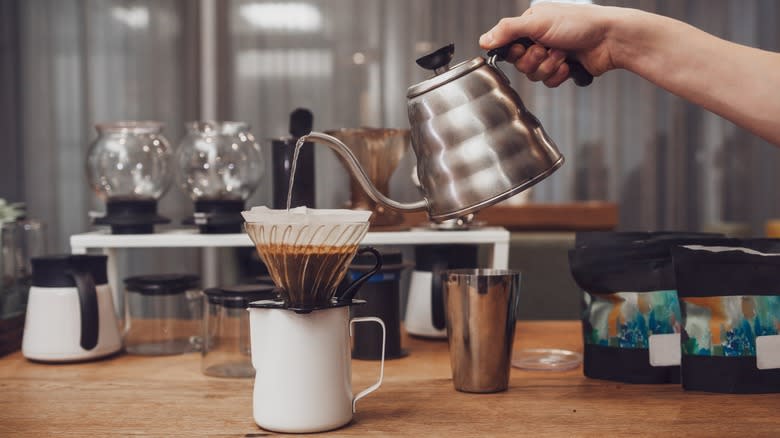How Mineral Packets Will Impact The Flavor Of Your Coffee

In addition to the beans themselves, a multitude of factors go into making a tasty cup of coffee. The grind size, extraction duration, temperature, ratio of coffee to water, and the brewing device all affect the resultant mug of joe. While there are many recipes and techniques that highlight optimizing such characteristics, one especially important element often flies under the radar: the water.
After all, a brewed coffee is nearly 99% water. So, even if the liquid base may seem flavorless, it still has detectable impacts on the result. Its mineral content -- referred to as its hardness -- along with other factors like its pH level and added chlorine, all impact the taste of water. When such compounds are hyper-saturated, the result is often a bitter, dull, or one-dimensional cup of coffee.
However, completely pure water isn't ideal, either. Without any minerals, extraction isn't optimized, and the resulting coffee will therefore be overly acidic and weak. So, how do you strike the perfect balance? First, learn the composition of your local water and then adjust it accordingly using mineral packets.
Read more: 26 Coffee Hacks You Need To Know For A Better Cup
Fine-Tune Water With Mineral Packets To Create A Perfect Brew

One hurdle to assessing water's impact on brewing is regional variance. The water coming out of your faucet is unique to your area, so a generalizing approach is not likely to be effective. Testing the water from the source usually involves laboratory work, but, luckily, many governments publish their area's water profile. From there, brewers can determine whether the water needs modification, like more filtration or an extra mineral boost.
Such an approach is especially useful for cafe owners or those who frequently use coffee machines -- especially since purifying overly hard water can prevent damaging mineral build-up. (Though regularly running some distilled white vinegar through your machine can help with that, too.) For a less convoluted approach, home brewers can create their own perfect coffee water from scratch.
Simply purchase distilled water -- a blank slate -- and then add in mineral packets specially designed for use in coffee. Noted producers like Third Wave Water even construct mixes tailored to the specific roast, so there's no need to wade through the complexities. Simply blend together the ideal extraction liquid, brew a fresh cup of joe, and enjoy the aromatic and flavorful result!
Read the original article on Tasting Table.

